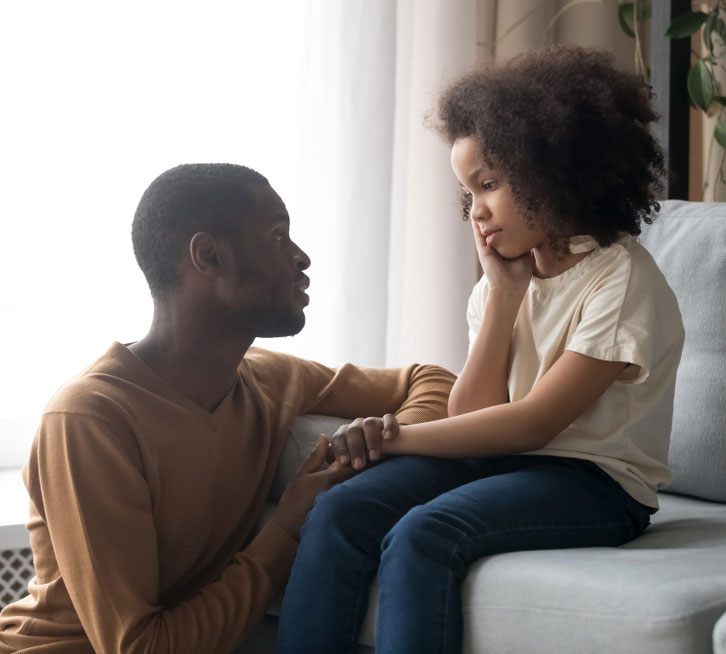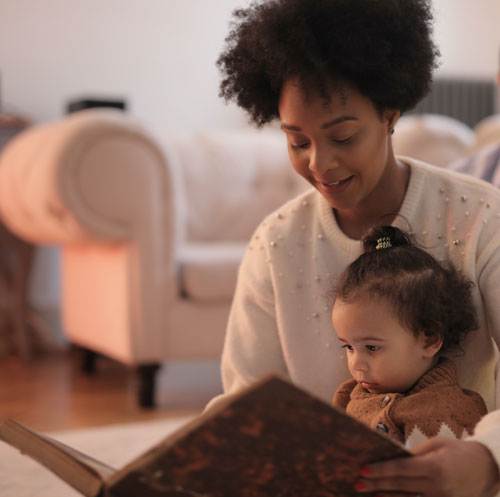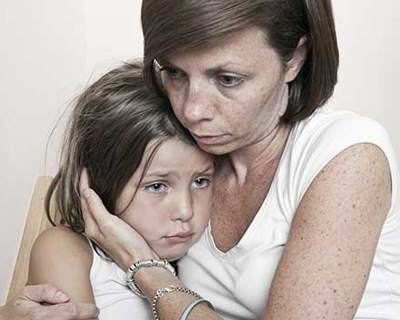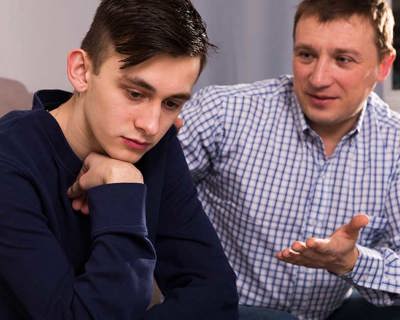Talking to children about racism and discrimination
With conversations about racial equality happening around the world right now, you might be thinking about how to talk to your children about racism and discrimination.
Parents and carers have an important job to help children make sense of the world around them. By encouraging open and honest conversations you can support your child to understand that everyone deserves to be treated equally and with respect.
It might not feel easy or comfortable – and that’s OK
You might find it difficult to have these conversations. It might feel awkward or uncomfortable, or you might struggle to find the words at all. That’s OK, keep trying. It will get easier the more you do. You can talk to Children 1st Parentline if you need some support.
Try to stay calm. Our children and us live in a multi-cultural world and children learn from the adults around them. Children - particularly young children - might feel worried to talk about something, no matter what it is, if they can tell it makes you uncomfortable, angry or emotional. Do what you can to encourage an open conversation without judgement or blame. It will help your child say what they really think.
You might also need to have difficult conversations if your child has heard racist language or seen racist behaviour. Your child themselves may have used words to describe people which are racist without understanding their impact. It can be hard to explain to your child why they shouldn’t use these words, especially if they have heard friends or family members use them. Honesty is key – children will spot if you try to skirt round the issue!
Difficult conversations with children are chances to build an even better relationship with them. Give your child a cuddle and let them know it’s safe to talk to you about anything.
Be honest and open
 Be honest with your children and don’t be afraid to tell them the truth – that even though everyone deserves to be treated equally, racism still exists. Explain that in the UK and many other countries people get treated differently because of the colour of their skin, and that’s not fair.
Be honest with your children and don’t be afraid to tell them the truth – that even though everyone deserves to be treated equally, racism still exists. Explain that in the UK and many other countries people get treated differently because of the colour of their skin, and that’s not fair.
You could reassure your child by telling them that lots of people are working really hard to make the world kinder and fairer - and every single person, adults and children, can play their part in this. Let them know things have got better, and we can all help it keep getting better by treating people equally.
Feelings are important. Ask your child how they feel about what you have talked about. They might not know or they might feel sad, worried, angry or guilty. Let them know that however they feel is OK and that you know it can be hard to talk about these things.
Encourage questions
Encourage your child to ask you questions. Listen carefully to what they have to say and let them know you’re happy they chose to talk to you. If you avoid a conversation or end it quickly it can make your child feel that their questions are wrong or the topic is ‘off limits’.
Older children might have more complicated questions. If you don’t know the answer, tell them. If an answer exists, you could think of a way to find out together and take the opportunity for both of you to learn.
Sharing experiences
Each family will have their own experience and understanding of race and racism that is individual to you, and the community you live in.
Whether you want to share your experiences with your children is your personal choice and will be different for every parent and carer. If you feel it is important for your child to understand your experience you could try talking through what you might say with an adult loved one first. Consider how it might make your child feel and what you can do to comfort them if they’re worried or anxious.
Set an example
Try to be a role model of the behaviour and values that you want to encourage in your child. As well as talking about racism, if your child sees you being actively anti-racist it can help them think about their actions.
Challenge racism you see or experience if you are safe to do so. Keep educating yourself and, if your children are old enough, make opportunities to learn together. Bring diversity into your home and celebrate individual differences. Through things like books and films you can help your child understand everyone's right to be treated fairly and equally.
Books can be a great way to start conversations with children and can give them the space to think about things in their own time.
Some books your family might enjoy
Board books and picture books:
 A Is for Activist by Innosanto Nagara
A Is for Activist by Innosanto Nagara - All Are Welcome by Alexandra Penfold, illustrated by Suzanne Kaufman
- Don’t Touch My Hair! by Sharee Miller
- Handa’s Surprise by Eileen Browne
- Julian Is A Mermaid by Jessica Love
- Sulwe by Lupita Nyong’o, illustrated by Vashti Harrison
- We’re Different, We’re the Same (Sesame Street) by Bobbi Jane Kates, illustrated by Joe Mathieu – this one is a little tricky to find in the UK but there is a fun read along video on YouTube
For primary school age children:
- The Little Leader books by Vashti Harrison
- The Little People, Big Dreams series
- This Is How We Do It by Matt Lamothe
For older children:
- This Book Is Anti-Racist by Tiffany Jewell, illustrated by Aurelia Durand
- Woke: A Young Poet’s Call to Justice by Mahogany L. Browne, Elizabeth Acevedo and Olivia Gatwood, Illustrated by Theodore Taylor III
- The Story of The Windrush by K. N. Chimbiri
- Noughts and Crosses by Malorie Blackman
Note: you might find some of these books are sold out at the moment, but keep an eye out for them coming back into stock.
Children 1st Parentline is here to support you and your family with emotional and practical support.



